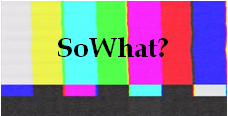The Case for World-Proofing Our Children
We cannot escape media content. We can “turn off”, “switch over”, “block”, “unfollow”, or “turn it down”, but because we live in a media-centric culture, we are forced to navigate our lives through a matrix of media content.
We experience media content directly when we listen to the radio on the drive to work, when we read a magazine while we wait to see a doctor, and when we ‘share’ click-bait articles on social media.
But we are also recycling media content when we discuss news and current affairs with our family, and friends and the views and knowledge have been created and shaped by media sources.
The pervasiveness of media in our culture is extremely problematic because it shapes how we make sense of ourselves and the world.
The media tells us what to think, how to feel, and how to behave. It influences how we see ourselves (our identity and our character), and how we see others.
It reinforces social norms and creates its own realities.
As adults we may take pride in being resilient to the negative effects of the media, to spot when we are being advertised to, and shun the idea that we are being lured into marketing agendas.
But children are defenseless.
So how can we equip ourselves and the next generation so that they survive our media world?
CHILD-PROOF THE WORLD
Should parents child-proof the world and implement strict media policies in the home that restrict screen-time, ban television programs, and remove electronic devices?
But even if we enforce strict media rules in our homes it is only a matter of time before children will be exposed to media content at a friend’s house, and definitely at school. And when they are exposed to media content they don't have the tools to make sense of it.
“Our education system has become a mediated space.”
Media content is building a stronger presence in the classroom and in the education of our children.
For example:
- online classroom blogs
- miniature supermarket branded collectables promoted as math equipment
- exercise and movement instruction provided by international online platforms
- websites that allow teachers to have celebrities lead story-time
If our children are spending 6 hours a day and 12 years of their lives in the classroom (a mediated space) then it is even more essential that children have media literacy skills.
UNLOCK THE MEDIA WORLD
So what do we do? Do we unlock the media world and allow children to make their own media choices, essentially employing the sink or swim ideology.
After all, media content is part of our world so children might as well get use to it.
Short answer: No.
WORLD-PROOF OUR CHILDREN
The reality is that the media is not inherently evil.
In fact, it has a lot of positive qualities – it informs, it educates, it strengths communities, and it can challenge injustices. But unless we have the tools to ensure that the media is used in a way that promotes healthy relationships, the extent of its power and influence cannot be contained.
The only way to combat the power of the media is to create critical and mindful consumers.
This is achieved through media literacy.
We need to give children the tools to build, shape, and handle media on their terms.
But children cannot do this unless we as individuals, as adults, as parents, as teachers, have the media literacy tools to teach them.
"We live in a media world. But we get to choose how we live with the media"
THIS ARTICLE IS AN ORIGINAL CONTRIBUTION
Author: Melissa Gould, Ph.D (AUT), MCS, BCS (Hons), BCS.
Dr Melissa Gould holds a Ph.D from the School of Communications at Auckland University of Technology in Auckland, New Zealand. She worked as a Media and Communications Lecturer at the School, and now works as an independent researcher and writer. Her primary research areas include media communication theory and cultural studies that examine religion, gender, religion, and childhood.

